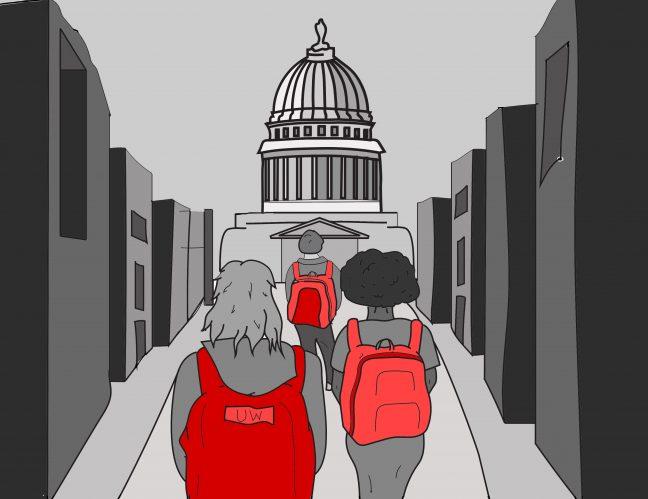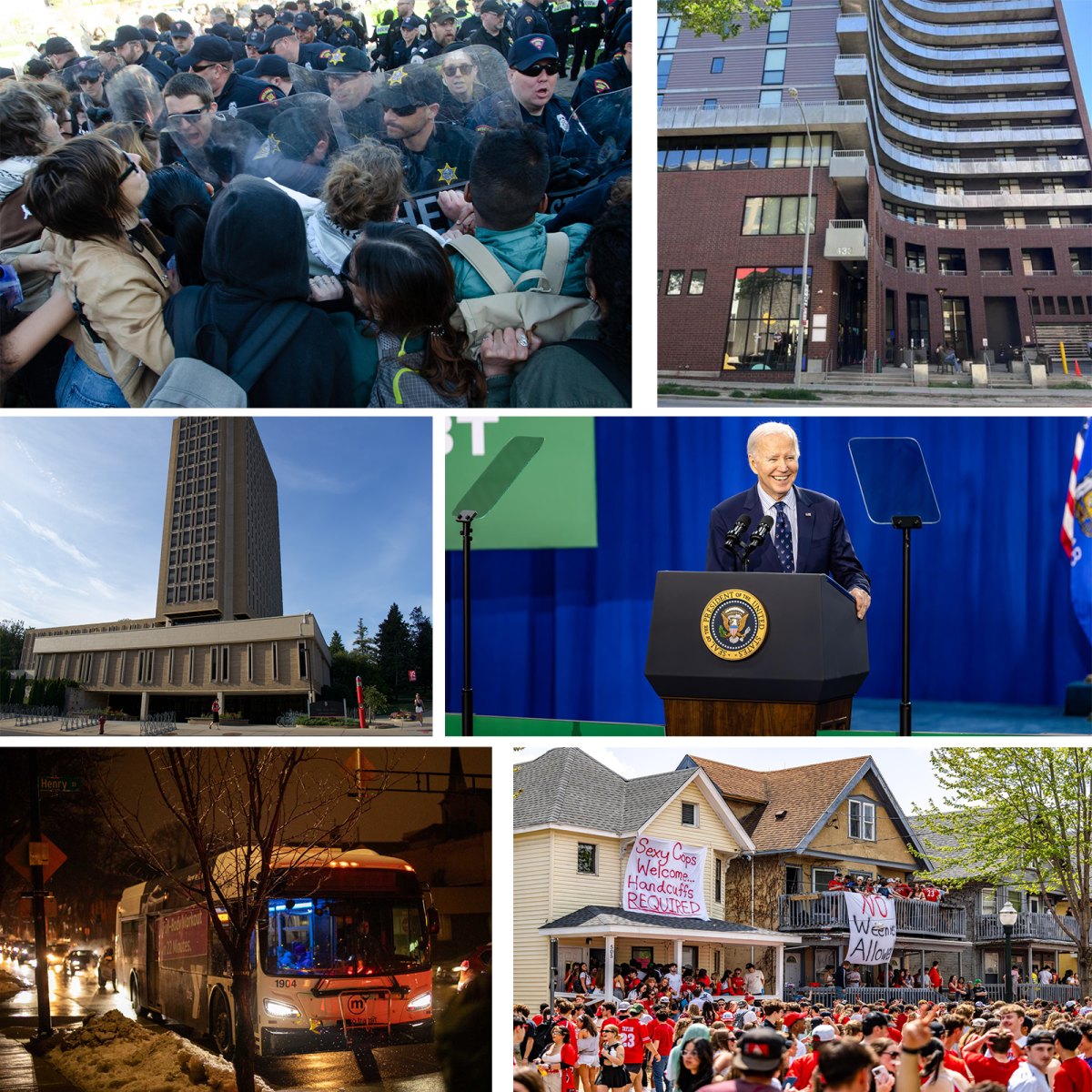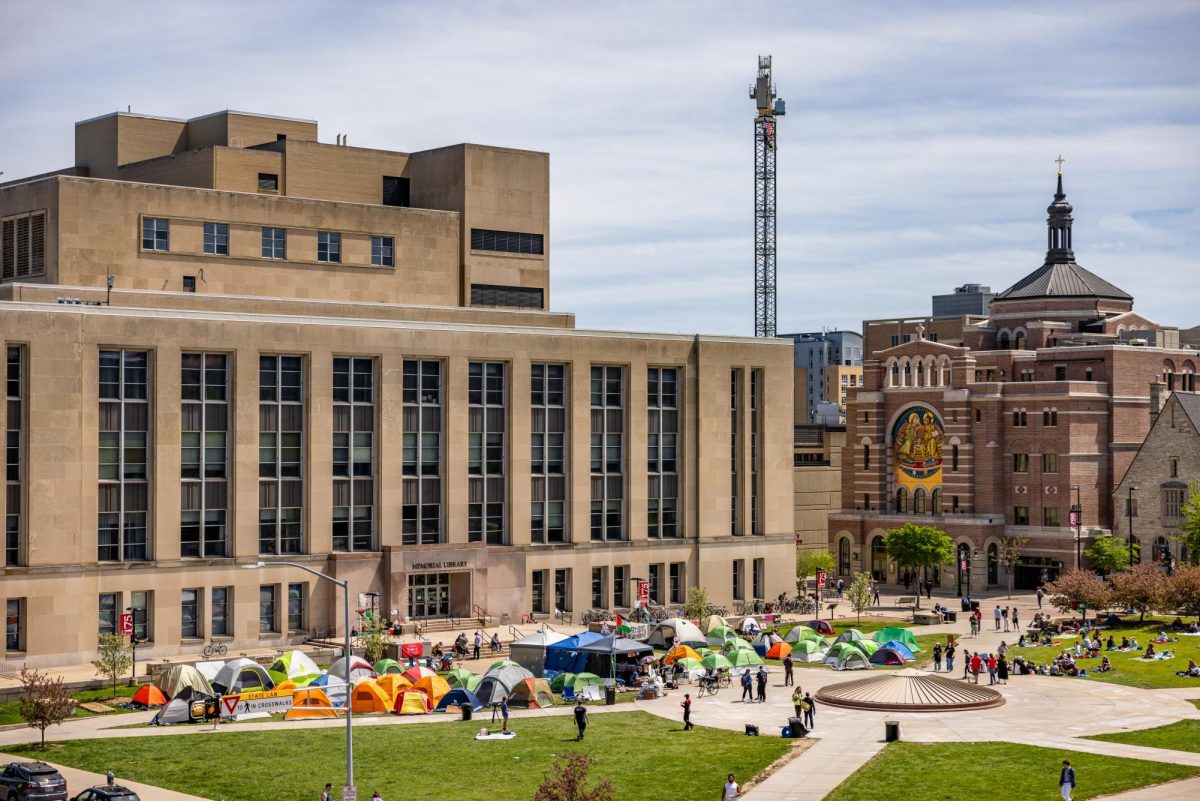It was a year destined to be seared in our national memory.
Defined by a wave of protest movements, 2018 was a year of grappling for many — grappling with how to navigate the post-2016 political landscape, how to respond to a seemingly endless series of mass shootings, how to survive when everything from nature itself to your elected officials seemed to threaten your livelihood.
But that’s not the only reason 2018 will be remembered. In the wake of these new challenges emerged America’s youth, invigorated by the urgency of the moment and ready to claim a seat at the table.
From Parkland, Fla., to our nation’s capital, young Americans this year organized a mass movement for change and placed themselves at the center of the discussion — from conversations about gun violence and civic engagement to those about sexual assault and climate change.
But this year provided more than just an opportunity for young Americans to protest. It also opened the door for them to flood the ballot box as we decided who would lead us forward. And when that door swung open, young Americans everywhere swarmed through it.
The results affirmed the intensity of the moment, as youth voter turnout increased as much as 188 percent from the last round of midterm elections in 2014. This state was no exception, as the University of Wisconsin campus saw a surge in youth participation compared to recent electoral memory.
That the UW campus was a national leader in civic engagement shouldn’t come as a huge surprise to those who know their Badger history, as student protesters here led one of the largest anti-war movements of the 1960s.
It’s from this history of youth engagement in and leadership of political activity that this city has developed a proud record of electing young people to public office. “We’re not the future, we’re the present.”
In 1986, a 24-year-old Tammy Baldwin, still a UW law student, was elected to the Dane County Board of Supervisors. Thirty years later, 23-year-old Hayley Young would be elected to the same body, where she currently represents campus and the surrounding area.
Preceding Baldwin’s run was that of Paul Soglin, Madison’s current mayor, who has left an indelible mark on city politics.
After leading much of the anti-war protests during his time at UW, a 27-year-old Soglin was elected mayor of Madison in 1973, shortly after his first bid for the city council in 1968. The district he represented is currently held by Ald. Zach Wood, who was first elected as a UW senior. And next year, that seat will be contested by two UW freshmen.
Those UW freshmen — 19-year-old Avra Reddy and 18-year-old Matthew Mitnick — now join a long tradition of young candidates in Madison responding to nationwide calls for change and carrying forward the proud tradition of student activism at UW.
Two UW freshmen declare candidacy for campus seat on Madison City Council
The race for the eighth
I met Mitnick and Reddy at Peet’s Coffee in Memorial Union. Despite falling days apart from each other, both meetings were conducted at the same table. Their similarities, I would discover, wouldn’t stop there.
They both told me stories of how local government is important and stressed that getting undergraduates involved with and interested in it is something they’re both dedicated to. They identified shared goals and similar policy positions in confronting some of the eighth district’s most pressing issues.
But most importantly, they both insisted that the eighth aldermanic district, which includes 19 UW residence halls and the immediate surrounding area, must be represented by a student or a recent graduate.
“You need somebody who can fight for you, who is like you and who has an understanding of what everybody else is going through,” Reddy told me. “People are less likely to fight for something if it’s not directly impacting them, so that’s why I wanted to run — because I wanted to provide a voice for everybody in this district.”
Mitnick echoed that sentiment. He said tragedies in his hometown of Thousand Oaks, California — namely, two massive fires and a mass shooting — showed him how important good leadership and representation can be in local government.
“Seeing those tragedies occur and what my family and friends have had to go through really proved to me that you need to have strong leaders to prevent such issues first and foremost, but also to navigate the communities around what the issues entail,” Mitnick said.
It’s that connection with one’s constituents — a student’s connection to their fellow students — that both Mitnick and Reddy believe to be the foundation of their plans to tackle issues facing Madison’s eighth aldermanic district.
Reddy said her campaign is focused on four major points — affordable housing, public safety, sustainability and combating homelessness. She acknowledged that a crucial part of achieving the goals she outlined will involve working with other members of the council, the mayor and community leaders.
And while she admitted it can be nerve-wracking to work with more experienced and established public figures, she described it as a “good type of nervous” — the type of nervousness she suggested incoming Rep. Alexandria Ocasio-Cortez, D-NY, might be feeling as she arrives in Washington. It’s the type of nervousness which gives way to an educational opportunity from those who are admittedly more educated on how to navigate the city council and affect change within its institutional parameters.
“When we’re learning about how to fix problems from people who are more experienced, then we get a sense of, ‘Okay, how can we take this and turn it into something that is our own, and make it new, and instill our new ideas into this?’” Reddy said. “I think that’s why young people need to be brought to the table more, because we’re not going to learn unless we’re given the opportunity to learn — because we’re not the future, we’re the present.”
Mitnick agreed that working with older, more traditionally experienced officials presents a learning opportunity on how to represent the district better in the future and deliver on his campaign promises.
Among the issues, Mitnick said he will be focusing on throughout the campaign are affordable housing, transportation, social justice, civic engagement and public safety. He plans to empower district committees, neighborhood associations and other arms of the local government to draw UW students into the decision-making and deliberation process — a crucial part of democratic, representational governance, Mitnick said. “The condition of being a student was challenging in that there weren’t a lot of opportunities to exercise influence. Students arrive, most are gone after four years, and so there was no institutional memory — there was no continuity — in terms of dealing with those issues.”
Reddy and Mitnick, then, have outlined similar policy positions and similar ways of achieving them. Similar still is their long and admittedly impressive records which have led to their decisions to run.
While Reddy is from a suburb of Chicago, the start of her freshman year didn’t mark the first time she’s lived in Madison. In 2016, at age 16, Reddy moved to Madison for the summer to work for the Democratic Party of Wisconsin at the height of what she described as an increasingly alarming Republican presidential primary.
When she returned to Madison this year, she again worked for Democratic Party candidates up and down the ballot as the 2018 midterms approached. It’s this record of working to elect progressive candidates that led Reddy to throw her own name in the ring.
As for Mitnick, he cited a passion for local government instilled in him by his father, a county administrator and former city manager, and his mother, a local public school teacher. Growing up, Mitnick recalled going to countless city council and county board meetings, where he saw firsthand the real impact local government can have on its constituents.
“Local government is in our lives in so many ways that we don’t even know or don’t always realize. That kind of behind the scenes work to benefit our lives is very inspiring to me, and seeing the work that my parents did for 18 years showed me the importance of public service,” Mitnick said. “ … So as a student representing students, I want to advocate on behalf of my peers.”
Throughout his time at UW, Mitnick has worked closely with the Associated Students of Madison and plans on modeling his campaign on the “phenomenal” student representation he’s seen from that body.
Clearing the way for both Mitnick and Reddy’s candidacies is the incumbent, Wood, who was first elected to represent the district as a UW senior in 2015. Inspiring his own run was a deeply held belief in the value of representation and that he could be a good voice for the UW community at that time.
Prompting his decision to step down next year are many of the same factors that led to his initial run — namely, the importance of representation.
“I think I am no longer the best voice for the eighth aldermanic district,” Wood said. “I’ve always been annoyed by folks who stick around longer than they should. I’ve always said I’d rather leave a term too early than stick around a term too long. I think that transition is important.”
Wood’s decision to step away isn’t commonly seen in American politics. Incumbents are often in office for decades, prompting debate over the ability of representatives who are largely dissimilar from their constituents to effectively advocate for them in any representational body.
UW freshman Matthew Mitnick kicks off alder campaign at Ian’s Pizza
Representation matters
Issues of representation in Madison go back a long way — all the way to the anti-war movement of the 1960s, which found a restless home at UW.
Leading that movement was Soglin, then a UW student unaware that he’d spend the next five decades at the helm of Madison’s political scene.
Driving Soglin’s first run for the city council in 1968 was what he described as a disconnect between Madison’s residents at-large and the student anti-war protesters. Then a member of a panel of university, student, community and governmental leaders who would travel around the city conducting town-hall type meetings, Soglin said he came to the conclusion that by “getting on the city council, there’d be an opportunity for the city residents to get a better understanding of student needs.”
Those needs, Soglin said, expanded beyond the anti-war demonstrations that dominated the headlines at that time, and largely included many of the same issues being debated today — transportation, affordable housing and public safety.
By being elected to the city council, Soglin, then just finishing his undergraduate education, hoped to advocate for these issues on a more foundational, institutional level.
“The condition of being a student was challenging in that there weren’t a lot of opportunities to exercise influence. Students arrive, most are gone after four years, and so there was no institutional memory — there was no continuity — in terms of dealing with those issues,” Soglin said.
Voices of change: UW political organizers seek to push protest tradition forward
Soglin said his election to the city council, along with those of other students in other aldermanic districts, had a “profound influence on city law and city policies.” He cited a growth in affordable housing and the improved relationships between student tenants and their landlords which developed as a result of his and other student alders’ work.
Soglin’s experience on the city council is a testament to the argument that leaders largely representative of the constituents they serve are able to affect greater change and deliver on their campaign promises.
It’s a political point many have pointed to as young, upstart candidates sprout across the country, oftentimes challenging older, more established incumbents. But it’s not just younger candidates taking center stage. Inherent to strides for greater representation are women and candidates of color. “Traditionally, this seat has not been held by a woman for years. Not only is this the ‘year of young people,’ people are also tagging this the ‘year of the woman.”
Kat Kerwin, a UW student who moved back to her hometown of Providence, Rhode Island, to run for the city council there, said it’s important to have “non-traditional” and “diverse candidates at all levels.”
Kerwin, who won her election, said serving in government as a young woman has shown her that people’s preconceived expectations rarely transfer over to reality.
“People are often surprised when things come out of my mouth because a lot of the old, white, rich, traditional politicians — they don’t really expect that they’re going to be challenged, and when they are, they think that you’ll back down because they perceive you as more vulnerable,” Kerwin said.
Back in Madison, Reddy echoed Kerwin’s sentiments, and stressed the importance of her would-be constituents seeing “a woman canvassing and wanting to earn this seat, because there are so many female students.”
Reddy said her experience as a woman gives her a unique insight, which she believes would be valuable for the eighth district’s constituents if she were to take office next year.
“Traditionally, this seat has not been held by a woman for years. Not only is this the ‘year of young people,’ people are also tagging this the ‘year of the woman,’” Reddy said. “We just elected more women to the House of Representatives than ever before. I think that being a female and being a minority, I do have insight in what it feels like to have to fight harder each day.”
At the heart of this strive for greater representation are young voters and, oftentimes, young candidates — something which UW professor Barry Burden said is due in large part to the 2016 election, which showed many young people that “there’s more at stake than they realized.”
Burden said most young voters and candidates favor the Democratic Party in this political moment, which benefits them in competitive races. UW College Democrats Chair Eliana Locke said her party has been able to bring young people under its wing in large part by “giving those individuals a voice in the party and its opportunities.”
But UW College Republicans Communications Director Alesha Gunther said conservatives have also benefited from this surge in youth activity. From the annual March for Life to the formation of youth organizations like the Leadership Institute and Campus Reform, young conservatives have been emboldened in this political atmosphere.
To 2019 and beyond
Next year and the ones that follow it, then, will serve as a testing ground for whether this youth activity is sustained in future elections.
In Madison, the mayoral race has become a local rendition of what we’ve seen elsewhere — a contest of an established, long-serving incumbent against upstart candidates who think it’s time for a change.
Also on the April general election ballot will be the eighth district alder. If all goes as planned, two UW freshmen will be on that ballot, adding their names to the already long and ever-growing list of young people who have thrown themselves into electoral politics.
But regardless of whatever happens in Madison next year, 2018 marked, for many, a shift in our politics — away from arguments that limit possibilities, that keep young people locked out, that passively allow a troubling status quo to continue.
Leading that shift was a series of young leaders who refused to accept those arguments at face value — who took them and stomped them underfoot as they marched into elected office.
Perhaps the best way to characterize 2018 and the leaders it introduced to us, then, are the words of Hayley Young, a young elected official herself who represents the campus district on the Dane County Board of Supervisors.
“They’re incredible, they’re amazing and they’re doing the damn thing.”















